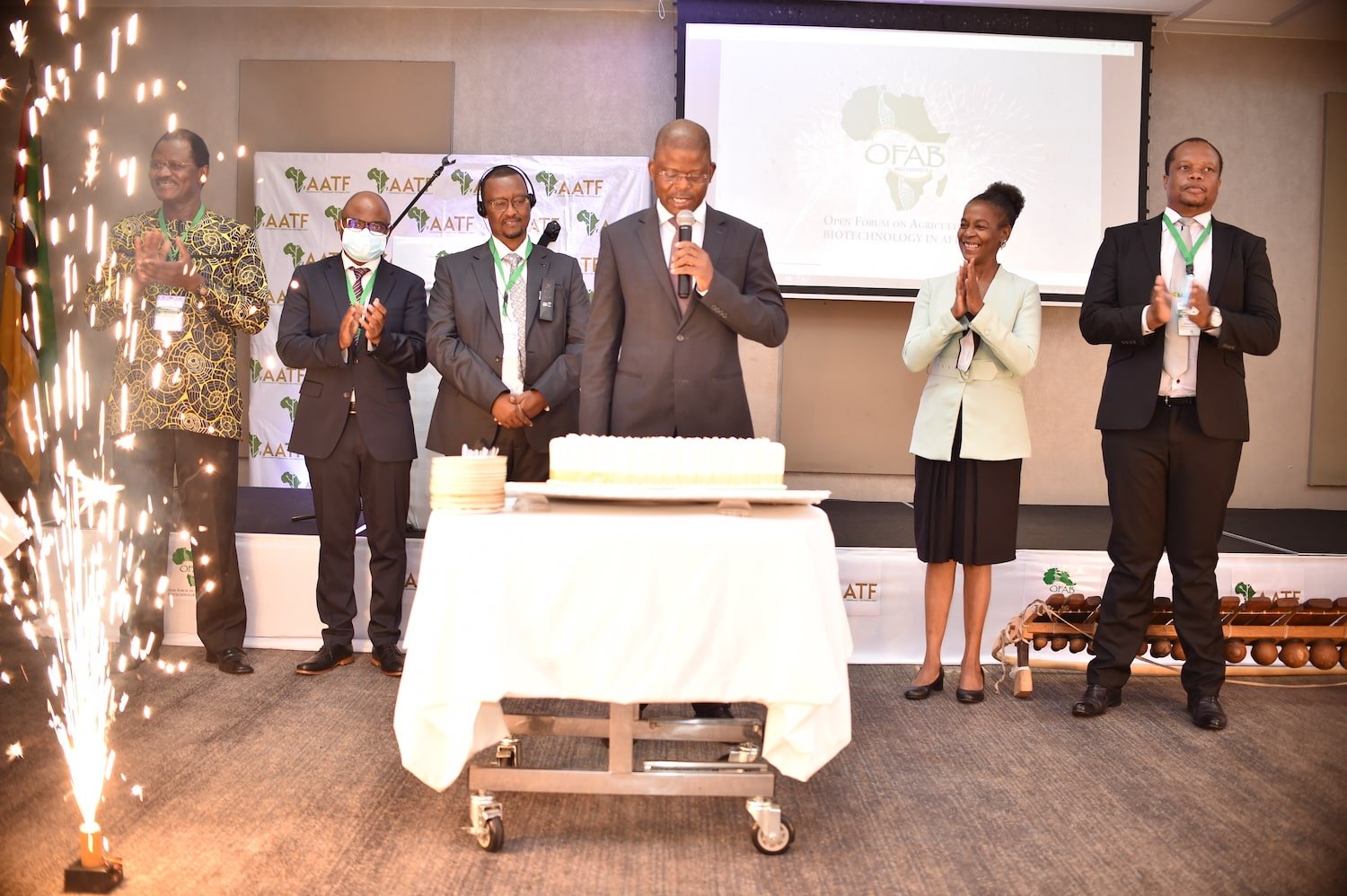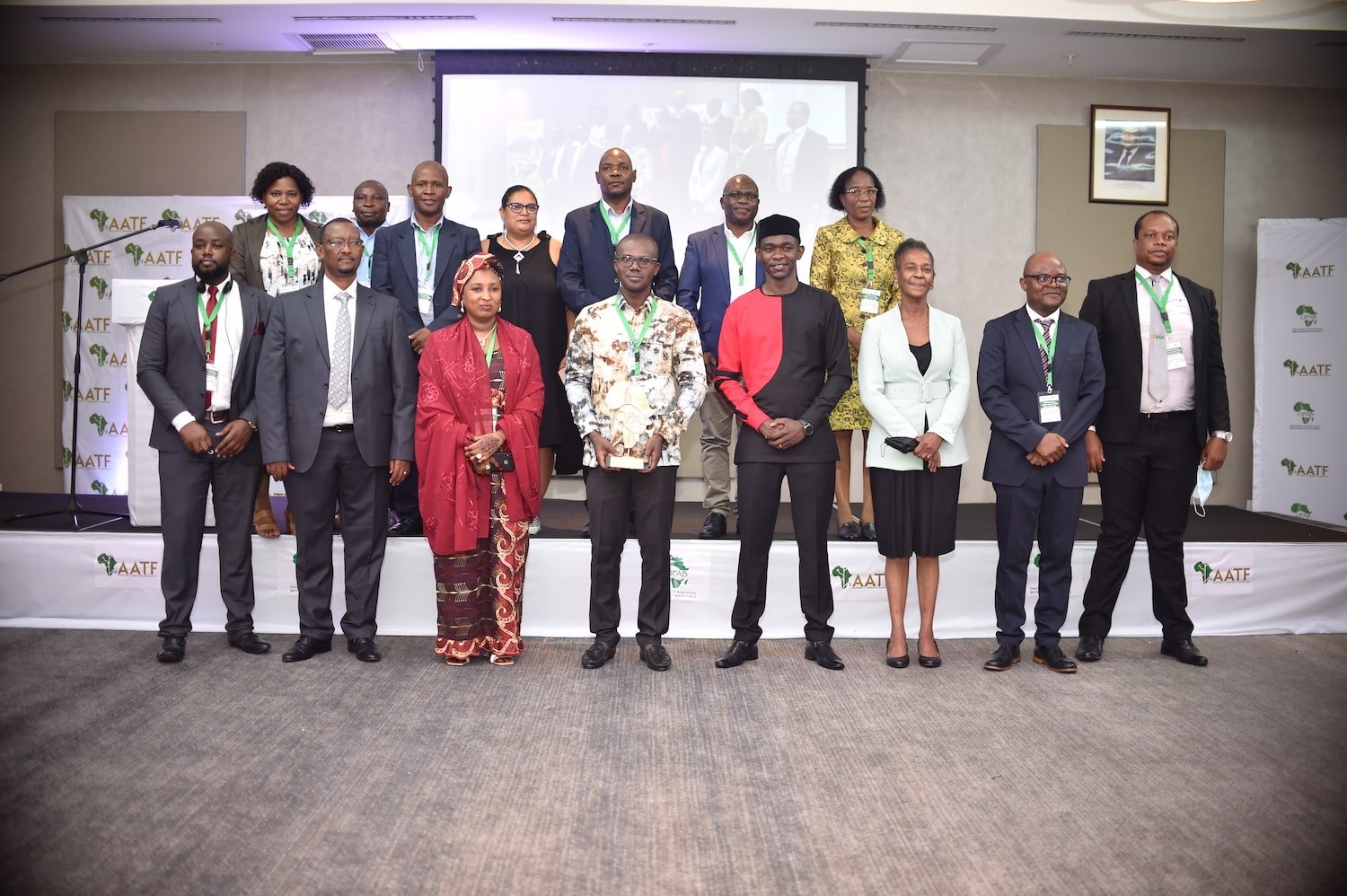Bridging the information gap in agricultural biotechnology
His quest for a food-secure Burkina Faso prompted him to found PLANÈTE AGRICULTURE magazine that brings new knowledge, data and skills to decision-makers on agriculture.
Responding to the access to information challenge for people in his country, 99% of whom speak local languages, he is translating his magazine into two national languages, Moore and Douala, so that it can create an impact among the local people.
On March 2022, Ouedraogo added a new feather on his cap by winning the Overall Journalist of the Year Award at the 5th OFAB Media Awards (OMAS) ceremony in Maputo, Mozambique. The annual awards, now in their sixth year, honour journalists who have distinguished themselves in the coverage of agricultural biotechnology on TV, radio, print and online.
The African Agricultural Technology Foundation (AATF) launched OMAs in 2016 to bridge the knowledge gap in agricultural biotechnology and equip journalists with the right skills, experiences and exposure to news sources.
AATF Executive Director Dr Canisius Kanangire says journalists have a role to demystify and simplify the knowledge from researchers and highlight the interventions that can help farmers address adverse agricultural production challenges such as the impacts of climate change, pests and diseases that stifle production.
But experts have pointed out that it requires a high level of skill in interpreting and communicating science, making ordinary people understand how it can help boost food security, debunking the misinformation around science and highlighting regulatory hurdles to the adoption of new technologies.
“AATF launched the OFAB Media Awards after noticing a glaring gap in evidence-based reporting on agricultural biotechnology. Reporting agriculture biotechnology was initially difficult as most journalists were not exposed to training on the subject.
They lacked access to news sources resulting in bias, misrepresentation of facts and presentation of unverified information as facts.
However, through the OFAB platform, we have seen a more informed media report accurately on issues of agriculture biotechnology,” says Dr Kanangire.
He says the winning journalists this year were recognised for translating and sharing scientific knowledge with diverse audiences, supporting AATF’s efforts to deliver prosperity through technology. Ethiopia’s Abebe Wolde Giorgis was the print and online winner, while Nigeria’s Dajie Blessing Odok won in the radio category.
Kenyan Dennis Otieno, a senior reporter at Citizen TV, was runnerup in the TV category.
Burkina Faso’s Alidou Ouedraogo was runner-up in the radio category, while Boubacar Tarnaguida was runner-up in the print category.
South Africa-based multimedia trainer, consultant and media viability specialist Eva Georgia, says reporting agricultural biotechnology requires practice and high standards.
“Biotechnology reporting requires stringent research, learning new knowledge all the time, following global trends and doing due diligence on every story covered.
Science journalism invokes a commitment to tell the truth even in the face of adversity,” says Goergia, who is one of the OMAs judges. Science journalists by nature, she says, have a passion and hunger for the work they choose to do and that at the heart of science reporting lies the ability to systematically unearth information and having the knowledge and skill to analyze and interpret data. “This requires the ability to investigate stories in order to deliver factual information backed by science through confined trials, lab tasks and proven case studies.
This is by no means an easy or traditional media field to report on, especially in Africa,” Georgia says. OFAB Project Manager Vitumbiko Chinoko says the awards have gone a long way in helping demystify the propaganda surrounding agricultural biotechnology while promoting the transformation of rural development through evidence-based information sharing. With OFAB support, journalists have been instrumental in disseminating information on agricultural biotechnology from their interaction with experts conducting research.
Their stories have steadily increased awareness and recorded various attributes of the technology and its contribution to the transformation of Africa’s agricultural sector.
There has been tremendous improvement in science reporting and increased public understanding of the science behind agricultural biotechnology since the inaugural awards in 2016, with 49% of the content reported on agricultural biotechnology in the local media channels coming from OFAB sources.
AATF established OFAB in 2006 to share credible and evidence-based information on biotechnology as well as provide a platform for stakeholders to interact on agriculture biotechnology. OFAB exists in 10 African countries – Burkina Faso, Ethiopia, Ghana, Kenya, Mozambique, Nigeria, Rwanda, Uganda, Tanzania and Malawi.
Through OFAB, AATF is also encouraging journalists to highlight the transformative impacts of science and technology on agricultural production practices. The adoption of new technologies has improved the efficiency of agricultural production practice. Agricultural systems throughout the world continue to adopt new and better technologies that enable them to become more efficient and competitive in developing new markets and capturing old markets for their agricultural products.
Scientists are intensifying efforts to improve agricultural productivity and food and nutrition security and reduce the high levels of poverty in Africa Agricultural biotechnology and other emerging technologies are transforming the lives of smallholder farmers, who form the majority of the population, through increased crop productivity.


